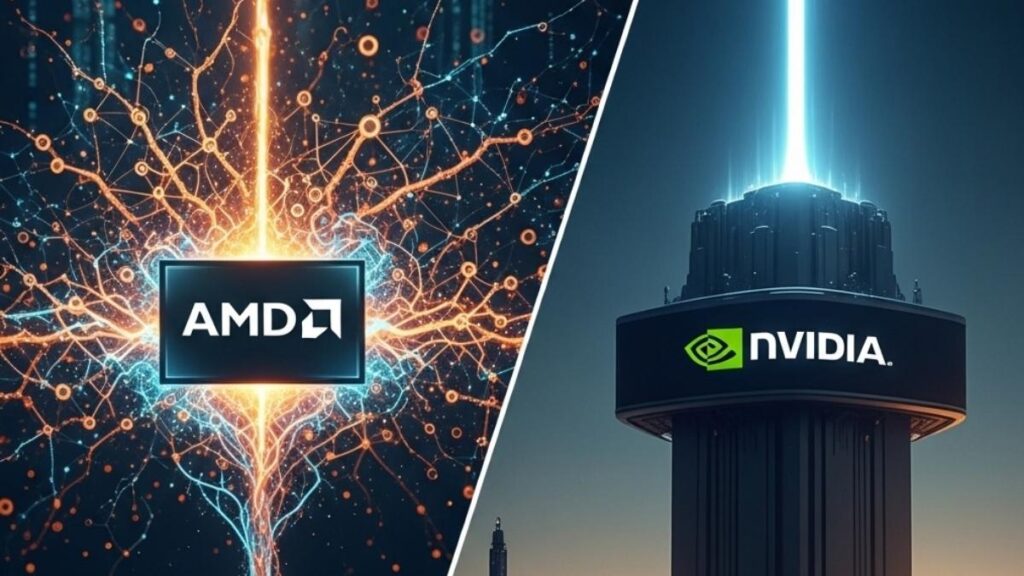Great News for AMD and ARM, and IBM’s Secret Weapon
This week the new top 500 Supercomputer list came out, and both ARM—which took the lead spot—and AMD (who upped their presence significantly) have reasons to be excited. Now, you’d think that IBM would be upset being knocked down from their 1-2 position to 2-3. But, they’re not. They have a secret weapon coming to the table called IBM Bayesian Optimization Technology that could spin this market like a top—effectively supercharging existing supercomputers with up to a 140x performance boost.
Let’s talk about this exciting news, which changes the supercomputing landscape this week.
Supercomputers
Supercomputers represent the most powerful computers in the market; they are used for some of the most critical tasks in the world that focus on the survival of the human race. From looking for potential extraterrestrial threats like asteroids to forecasting the weather, to finding medicines that will mitigate or eliminate COVID-19, supercomputers are our leading weapon in the fight to continue living. While small in number, these machines explore and attempt to solve some of the most important and most challenging problems we as a race face.
With costs in the stratosphere but still a value given what they attempt to accomplish, these machines not only provide substantial bragging rights for the vendors and technology, they showcase a level of performance that is unmatched.
ARM Wins, Heads Spin
ARM has been trying to penetrate the server market for over a decade with disappointing results. This inability to perform has generally created the impression that the technology can’t scale and, overcoming such an impression is one of the most significant gating factors preventing the platform—which has improved and matured—from penetrating this market.
By taking the top spot, ARM showcases it can scale to the ultimate levels—providing a foundation for focus and interest in the platform again. One company to keep an eye on in this emerging space is Ampere, who, this week, announced a 128 core ARM processor that could be used to expand ARM’s penetration significantly into the server market and increase the competitive pressure on the existing players significantly.
AMD Ups Their Supercomputer Game
AMD had two exciting pieces of news this week as well. First, they had a significant design win with Dell with their R6515 VxRail E Series of hyper-converged solutions. This announcement put them solidly back into the server game because, arguably, Dell is the strongest server vendor currently in the market. Add to this that they now have four supercomputers based on their technology. Number 7 the Selene, which is a blend of AMD and NVIDIA technology, number 30 Belenos at Meteo-France, number 34 the Joliot-Curie at GENCI, the French national high-performance computing organization, and number 48 the Mahti located in Finland.
These design wins effectively put them back, not only in servers but solidly in HPC (High-Performance Computing), and both should expand the available market for AMD server processors substantially.
IBM Changes the Game
Now you’d expect IBM to be upset; the growth is with AMD, the top spot that IBM used to own went to ARM, seeming to trivialize IBM’s efforts. But I spoke with IBM, and not only are they not upset, but they are also planning to spin this market like a top with a new offering called IBM Bayesian Optimization Technology.
This technology works like how a supercharger would work on a car engine but with a much more dramatic potential impact. With the potential to increase an existing supercomputer’s performance by up to 140x Bayesian Optimization works by modifying the problem before the supercomputer works on it. And it not only improves the performance of the supercomputer benefiting from it, it potentially improves the accuracy as well. It can, conversely, be used to reduce the number of cores needed by up to 99%, shifting problems that only could be done on the top supercomputers to other less expensive and far more prevalent HPC solutions.
When ready, with this kind of boost—much like superchargers and turbochargers changed high performance driving—IBM Bayesian Optimization could have an even more dramatic impact on the supercomputer segment.
Wrapping Up
This was a great week for ARM and AMD, and the new IBM technology doesn’t detract from that. The IBM technology could be applied to these supercomputers to make them vastly more capable and extend their lives years longer than otherwise might be the case. The combination of these efforts means that the most critical future projects will not only be solved far more quickly, but projects that currently can’t get supercomputer time will, and that means the rate of scientific and commercial advancement is about to increase significantly.
Given much of this resource is focused on critical problems like ending the current pandemic, that is a very good thing.
- The Human Element: HP’s Latest Security Report and My Near-Miss with a Digital Predator - July 11, 2025
- The Mighty Mini: Why HP’s Z2 Mini G1a Workstation Is the Unsung Hero of AI Development - July 7, 2025
- The HP OmniBook X Flip 2-in-1 16-Inch: Your New Digital Swiss Army Knife (Now in Glorious Atmospheric Blue) - June 25, 2025



